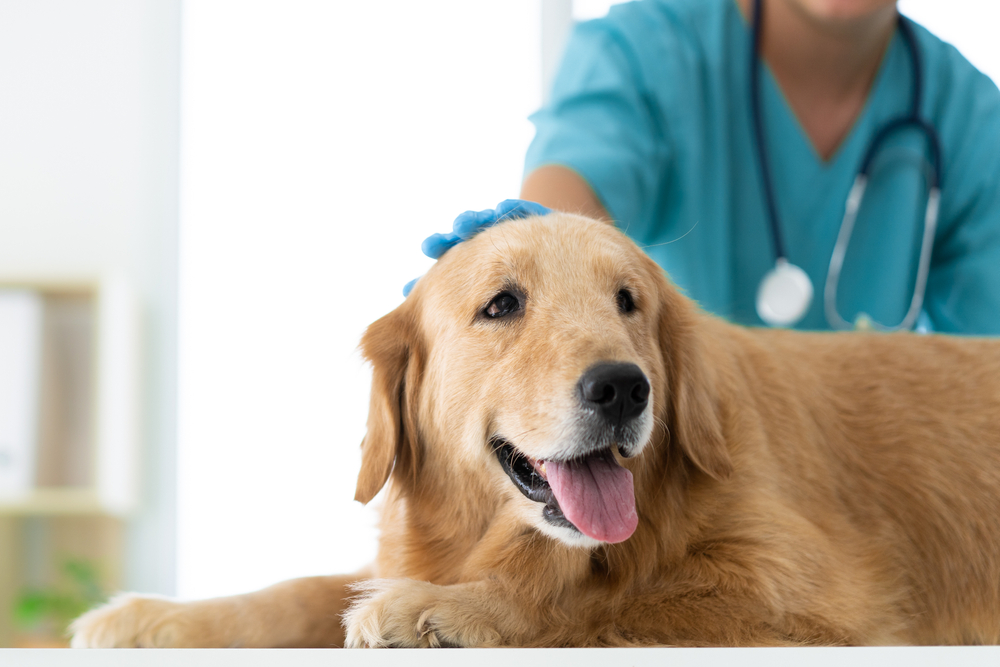Recognizing and Managing Hypothyroidism in Your Pet
Like humans, cats and dogs have a butterfly-shaped thyroid gland that produces the hormones responsible for regulating metabolism, the system that converts food into energy. Functioning normally, the thyroid gland releases regulated amounts of various hormones. Any imbalances can lead to a variety of symptoms including changes in behavior, energy, appetite, weight, and appearance.

What Is Hypothyroidism?
Hypothyroidism occurs when the thyroid gland produces too little hormone, causing health problems.

Signs and Symptoms of Hypothyroidism
Decreased hormone levels slow the metabolism’s rate, which can result in symptoms including:
- Hair loss or other coat changes
- Flaky, dry skin
- Darkened skin around the armpits or groin
- Unexplained weight gain
- Lethargy
- Ear or skin infections
- Drooping face
- Vomiting
- Neurological issues
Symptoms vary from pet to pet. If you notice any changes in behavior, appetite, energy, or appearance, we recommend scheduling an appointment with your veterinarian, as these kinds of changes can signify health problems.
How Is Hypothyroidism Diagnosed?
During a veterinary visit, your pet’s veterinarian might suspect a thyroid problem based on your pet’s appearance and the symptoms you describe. Hypothyroidism can be confirmed with a simple diagnostic blood panel that measures and compares the levels of various hormones present in your pet’s bloodstream.


Hypothyroidism Risk Factors and Causes
While cats are rarely diagnosed with hypothyroidism, the condition is fairly common in medium and large-breed dogs. Certain breeds are at a higher risk of developing hypothyroidism such as:
- Airedale terriers
- Cocker spaniels
- Dachshunds
- Doberman pinschers
- Golden retrievers
- Irish setters
- Miniature schnauzers
Pets sometimes develop hypothyroidism for no discernible reason. Other times, the condition can be caused by lymphocytic thyroiditis (an immune problem), cancer, or a malformed thyroid gland which would be present at birth.
Hypothyroidism Treatment: Managing Hypothyroidism in Pets
Hypothyroidism cannot be cured, but for most dogs, hypothyroidism is relatively easy to treat and manage with hormone replacement medication that’s administered one or two times each day. Initially, your veterinarian will prescribe your dog a hormone therapy dose based on the hormone levels found in his or her blood panels.
After the initial diagnosis, you will likely be asked to schedule a follow-up appointment, as well. At this time, your veterinarian will talk with you about symptoms, weigh your pet, and run new blood tests to adjust your pet’s dose and medication schedule. Throughout your pet’s life, medication adjustments will be an ongoing process.
To learn more about thyroid replacement medications for dogs and cats or to learn how our VetMedics Compounding Pharmacy can simplify your pet’s hormone replacement therapy, we welcome you to contact us today.

 ACCOUNT LOGIN
ACCOUNT LOGIN ACCOUNT SIGN-UP
ACCOUNT SIGN-UP








 CLINIC LOGIN
CLINIC LOGIN